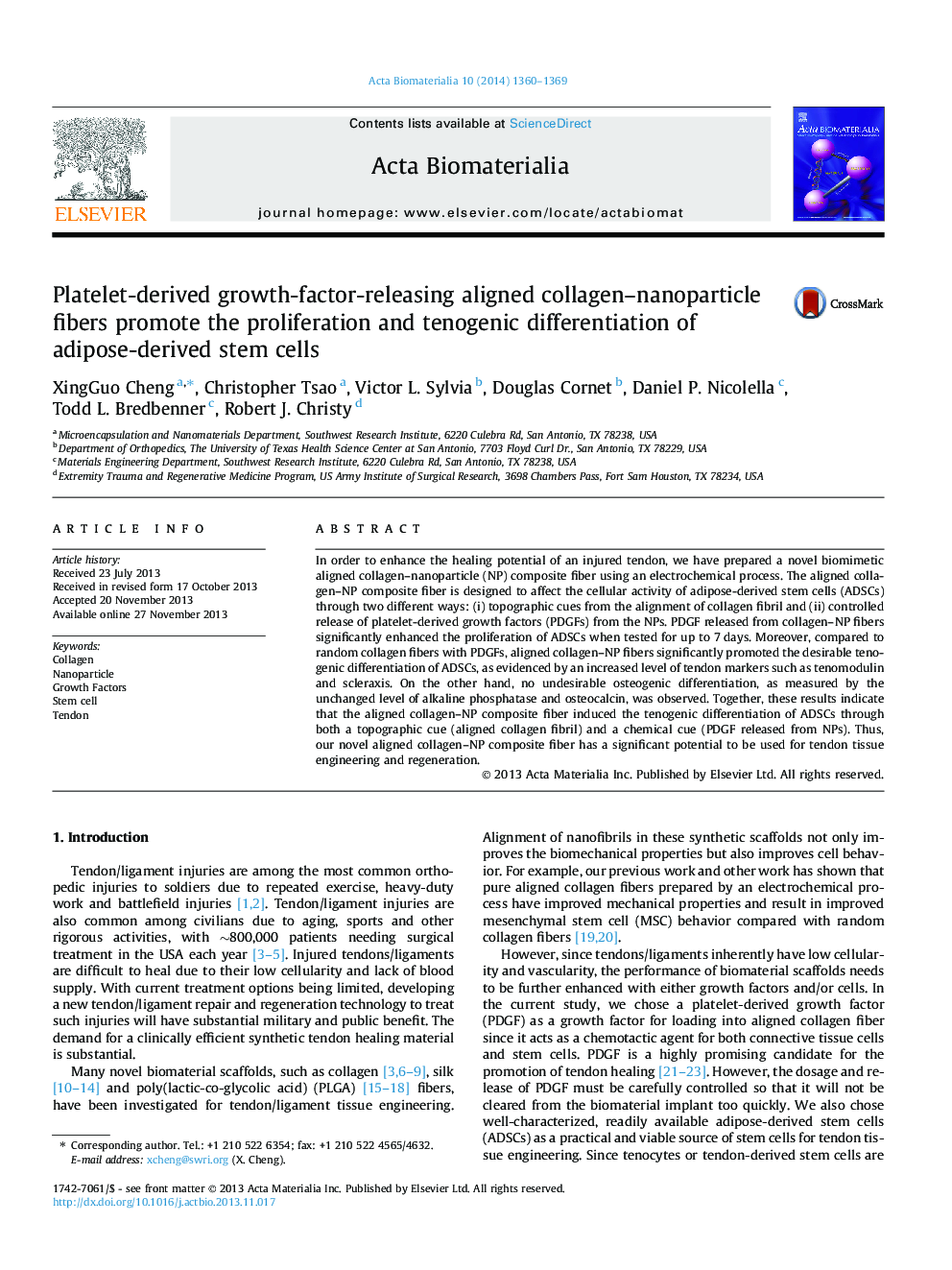| Article ID | Journal | Published Year | Pages | File Type |
|---|---|---|---|---|
| 10159289 | Acta Biomaterialia | 2014 | 10 Pages |
Abstract
In order to enhance the healing potential of an injured tendon, we have prepared a novel biomimetic aligned collagen-nanoparticle (NP) composite fiber using an electrochemical process. The aligned collagen-NP composite fiber is designed to affect the cellular activity of adipose-derived stem cells (ADSCs) through two different ways: (i) topographic cues from the alignment of collagen fibril and (ii) controlled release of platelet-derived growth factors (PDGFs) from the NPs. PDGF released from collagen-NP fibers significantly enhanced the proliferation of ADSCs when tested for up to 7Â days. Moreover, compared to random collagen fibers with PDGFs, aligned collagen-NP fibers significantly promoted the desirable tenogenic differentiation of ADSCs, as evidenced by an increased level of tendon markers such as tenomodulin and scleraxis. On the other hand, no undesirable osteogenic differentiation, as measured by the unchanged level of alkaline phosphatase and osteocalcin, was observed. Together, these results indicate that the aligned collagen-NP composite fiber induced the tenogenic differentiation of ADSCs through both a topographic cue (aligned collagen fibril) and a chemical cue (PDGF released from NPs). Thus, our novel aligned collagen-NP composite fiber has a significant potential to be used for tendon tissue engineering and regeneration.
Related Topics
Physical Sciences and Engineering
Chemical Engineering
Bioengineering
Authors
XingGuo Cheng, Christopher Tsao, Victor L. Sylvia, Douglas Cornet, Daniel P. Nicolella, Todd L. Bredbenner, Robert J. Christy,
